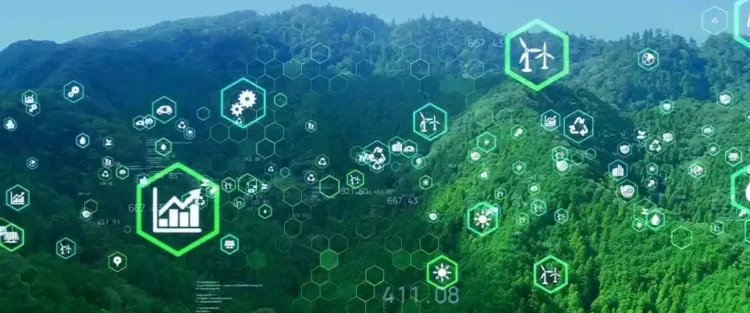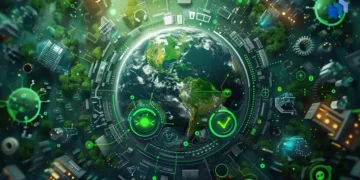[ad_1]
Revolutionizing the Future: The Rise of Clean Tech Innovations
In today’s rapidly evolving world, the need for sustainable and eco-friendly solutions has never been more pressing. The rise of clean tech innovations is paving the way for a greener and more sustainable future, revolutionizing the way we live, work, and interact with our environment. From renewable energy sources to smart grid technology, clean tech innovations are reshaping industries and driving a shift towards a more sustainable and environmentally conscious society.
The Importance of Clean Tech Innovations
Clean tech innovations play a crucial role in addressing some of the most pressing environmental challenges facing our planet today. With climate change becoming an increasingly urgent issue, the need for sustainable solutions has never been more critical. Clean tech innovations offer a way to reduce our carbon footprint, minimize waste, and promote sustainable practices across industries.
Renewable Energy Sources
One of the most significant clean tech innovations is the rise of renewable energy sources such as solar, wind, and hydroelectric power. These sources of energy offer a sustainable alternative to traditional fossil fuels, which are rapidly depleting and contributing to greenhouse gas emissions. By harnessing the power of renewable energy sources, we can reduce our reliance on fossil fuels and lower our carbon footprint.
Smart Grid Technology
Another key clean tech innovation is smart grid technology, which revolutionizes the way we distribute and consume electricity. Smart grids enable more efficient energy distribution, reduce energy wastage, and promote the integration of renewable energy sources into the grid. By optimizing energy usage and reducing inefficiencies, smart grid technology plays a crucial role in promoting sustainability and reducing our impact on the environment.
The Benefits of Clean Tech Innovations
The adoption of clean tech innovations offers a wide range of benefits, both for the environment and for businesses and consumers. By investing in clean tech solutions, companies can reduce their operating costs, improve their sustainability credentials, and attract environmentally conscious consumers. Clean tech innovations also create new job opportunities and drive economic growth in the emerging green economy.
Environmental Benefits
One of the primary benefits of clean tech innovations is their positive impact on the environment. By reducing our reliance on fossil fuels and promoting sustainable practices, clean tech solutions help to lower greenhouse gas emissions, reduce air and water pollution, and preserve natural resources. This not only benefits the environment but also helps to mitigate the effects of climate change and create a more sustainable future for generations to come.
Economic Benefits
In addition to their environmental benefits, clean tech innovations also offer significant economic advantages. By investing in clean tech solutions, companies can reduce their energy costs, improve their operational efficiency, and gain a competitive edge in the market. Clean tech innovations also create new job opportunities in sectors such as renewable energy, smart grid technology, and energy efficiency, driving economic growth and fostering innovation in the green economy.
Challenges and Opportunities in Clean Tech
While clean tech innovations offer a promising path towards a more sustainable future, they also face a range of challenges that must be overcome to realize their full potential. From regulatory barriers to technological limitations, clean tech innovations face a number of obstacles that require innovative solutions and collaborative efforts from governments, businesses, and consumers.
Regulatory Barriers
One of the primary challenges facing clean tech innovations is the presence of regulatory barriers that hinder their widespread adoption. In many cases, outdated regulations and policies favor traditional energy sources over clean tech solutions, making it difficult for companies to invest in sustainable practices. To overcome these barriers, governments must implement supportive policies and incentives that encourage the adoption of clean tech innovations and promote sustainability across industries.
Technological Limitations
Another challenge facing clean tech innovations is the presence of technological limitations that hinder their scalability and efficiency. While renewable energy sources have made significant advancements in recent years, they still face challenges such as intermittency and storage limitations. To overcome these technological barriers, researchers and innovators must continue to develop new technologies and solutions that enhance the performance and reliability of clean tech innovations.
The Future of Clean Tech Innovations
Despite the challenges facing clean tech innovations, the future looks bright for sustainable and eco-friendly solutions. As governments, businesses, and consumers increasingly prioritize sustainability and environmental consciousness, the demand for clean tech innovations is expected to grow exponentially in the coming years. From advancements in renewable energy sources to the development of smart grid technology and energy-efficient solutions, clean tech innovations are poised to revolutionize the way we live, work, and interact with our environment.
Advancements in Renewable Energy
One of the most promising areas of clean tech innovation is the advancements in renewable energy sources. Technologies such as solar panels, wind turbines, and hydroelectric power plants continue to improve in efficiency and cost-effectiveness, making renewable energy a viable alternative to traditional fossil fuels. As the demand for clean and sustainable energy sources continues to rise, we can expect to see further advancements in renewable energy technologies that enable widespread adoption and integration into our energy systems.
The Rise of Energy Storage Solutions
Another key trend in clean tech innovations is the rise of energy storage solutions that address the intermittency and storage limitations of renewable energy sources. Technologies such as lithium-ion batteries, hydrogen fuel cells, and pumped hydro storage systems offer a way to store excess energy generated from renewable sources and deliver it when needed. By integrating energy storage solutions into our energy systems, we can enhance the reliability and resilience of renewable energy sources and accelerate the transition towards a more sustainable and renewable energy future.
Conclusion
In conclusion, clean tech innovations are revolutionizing the future by driving a shift towards a more sustainable, eco-friendly, and environmentally conscious society. From advancements in renewable energy sources to the development of smart grid technology and energy-efficient solutions, clean tech innovations offer a way to reduce our carbon footprint, minimize waste, and promote sustainable practices across industries. By investing in clean tech solutions, companies can lower their operating costs, improve their sustainability credentials, and attract environmentally conscious consumers. As governments, businesses, and consumers increasingly prioritize sustainability and environmental consciousness, the future looks bright for clean tech innovations and the emergence of a greener and more sustainable future for generations to come.
[ad_2]












